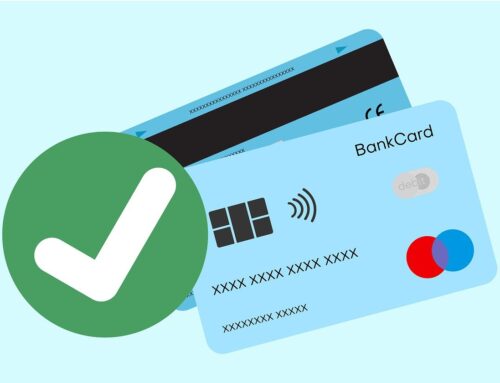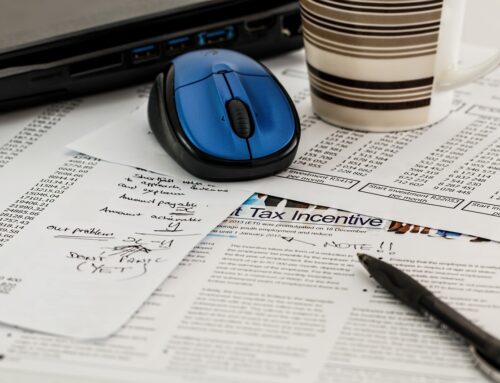
Navigating Post-Dated Checks in Philippines Condo Rentals
For many renters in the Philippines, condo hunting comes with a common condition: submitting post-dated checks (PDCs) for the entire lease term. While this setup is convenient for landlords, it can raise valid concerns for tenants. Let’s take a closer look at why PDCs are so common, what they mean for you, and what options you might have if you’re not comfortable with them.
Why Landlords Prefer Post-Dated Checks
Post-dated checks aren’t just about convenience—they offer real benefits for landlords, which is why they’ve become a standard requirement in many rental agreements.
-
Guaranteed Rent Payments
Landlords see PDCs as a safety net. With checks dated for each month of the lease, they can count on rent arriving on time without having to follow up or chase late payments. -
Financial Stability
Regular income helps landlords manage expenses, especially if they rely on rental income for mortgage payments or other obligations. PDCs offer predictable cash flow and reduce the risk of vacancies due to missed payments. -
Less Hassle
Collecting rent manually each month can be time-consuming. With PDCs, landlords simply deposit the check when it’s due—no need for reminders or in-person collections. -
Security Against Early Lease Termination
Knowing they’re holding your checks may discourage tenants from leaving early, which protects landlords from unexpected vacancies and income loss. -
Leverage in Disputes
If a check bounces, landlords have a clear legal trail and evidence of non-payment, which can speed up dispute resolution in court.
Before You Agree: What Tenants Should Consider
While landlords benefit from PDCs, it’s important for renters to know what they’re signing up for and to protect themselves in the process.
1. Understand the Risks
-
Checks Can Be Misused
A PDC is a negotiable instrument, meaning it can be cashed by anyone who holds it. If one gets lost or stolen, your funds could be at risk. -
Get a Receipt
Always ask for a written receipt from your landlord confirming how many PDCs they received and that they’ll store them securely.
2. Request Flexibility
-
Life Happens
Emergencies and unexpected changes happen. Before signing, ask if the landlord is open to allowing a stop payment on a check in the case of a valid reason—like a breach of contract or serious personal issue. -
Try Shorter PDC Batches
Instead of writing checks for the entire lease period, see if the landlord will accept 3 or 6 months of PDCs at a time. This still provides them with security while giving you a bit more control.
Finding Balance
While PDCs are common in the Philippines, they’re not your only option. If you’re uneasy about providing a year’s worth of checks up front, talk to your landlord. In many cases, open communication can lead to a compromise that works for both sides—such as monthly bank transfers, shorter PDC intervals, or escrow arrangements.
Exploring Alternatives to Post-Dated Checks (PDCs)
Not all renters are comfortable with the idea of handing over a year’s worth of post-dated checks, especially expats who are still adjusting to life in the Philippines. Fortunately, there are workable alternatives worth exploring.
1. Online Bank Payments
Many local and international banks offer secure online payment services. Suggest using these platforms for monthly rent payments—this ensures on-time delivery while avoiding the risks of lost or mishandled checks.
2. Post-Dated Standing Bank Orders
Instead of physical checks, consider setting up a standing order with your bank. This allows rent to be automatically transferred to your landlord’s account on a specific date each month, providing the consistency landlords appreciate.
3. Increased Security Deposit
If you’re hesitant to commit to PDCs, offer a higher security deposit as a sign of good faith. This can help put landlords at ease and offset any perceived risk.
Navigating PDCs as an Expat Renter in the Philippines
For expats new to the country, meeting the PDC requirement can be challenging, especially without a local bank account. Here’s how to handle it:
1. Be Open About Your Situation
-
Start With Transparency
Explain your expat status and why setting up a local account or issuing checks may take time. Most landlords appreciate honest communication. -
Suggest Alternatives
Offer to pay via international bank transfer or in cash on a fixed monthly schedule while you work on opening a local account.
2. Negotiate Flexibility
-
Find a Willing Landlord
Some landlords are more flexible, especially if they’ve rented to expats before. Negotiate alternatives like a larger deposit or a local co-signer. -
Consider Furnished Apartments
Shorter leases and month-to-month furnished rentals are often more open to alternative payment methods, including cash or online transfers.
3. Use Technology to Your Advantage
-
Payment Platforms
Look into online platforms that work in both your home country and the Philippines. Some offer secure, recurring payment features ideal for rent. -
Prepaid Reloadable Cards
As a temporary workaround, you might be able to use a reloadable prepaid card for rent payments until your banking is in order.
Understanding the Risks: The Legal Bite of a Bounced Check
Post-dated checks offer landlords more than convenience—they provide legal protection under Philippine law. Here’s what that means for you as a tenant:
Batas Pambansa Blg. 22: The Bounced Check Law
In the Philippines, issuing a check that bounces due to insufficient funds is taken seriously. Under BP 22, this offense can lead to:
-
Fines: Up to twice the amount of the check
-
Jail Time: From 30 days up to 1 year
-
Civil Lawsuits: Landlords can still pursue unpaid rent and damages separately through civil court
Why This Gives Landlords Leverage
-
Added Assurance
With the threat of legal consequences, tenants are more likely to keep funds available to avoid bouncing a check. -
Faster Recourse
Compared to late payments, a bounced check gives landlords a quicker path to legal resolution, adding weight to their collection process.
How Tenants Can Protect Themselves
While PDCs give landlords some control, tenants aren’t without options—especially when they understand their rights and responsibilities.
-
Stay Transparent
Be honest about your financial position. Landlords are more likely to be flexible if you’re upfront. -
Offer Secure Alternatives
Show responsibility by proposing options like online transfers, bank standing orders, or shorter PDC durations. -
Negotiate Shorter PDC Commitments
Instead of providing PDCs for the full lease term, offer them quarterly or for a few months at a time to reduce exposure to unforeseen financial issues.
Final Thoughts: Find What Works for Both Sides
PDCs are deeply rooted in rental practices across the Philippines, but they’re not always the best solution for every tenant. With clear communication, reasonable alternatives, and a solid understanding of local laws, you can reach a rental agreement that protects both your interests and your landlord’s peace of mind.

















